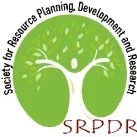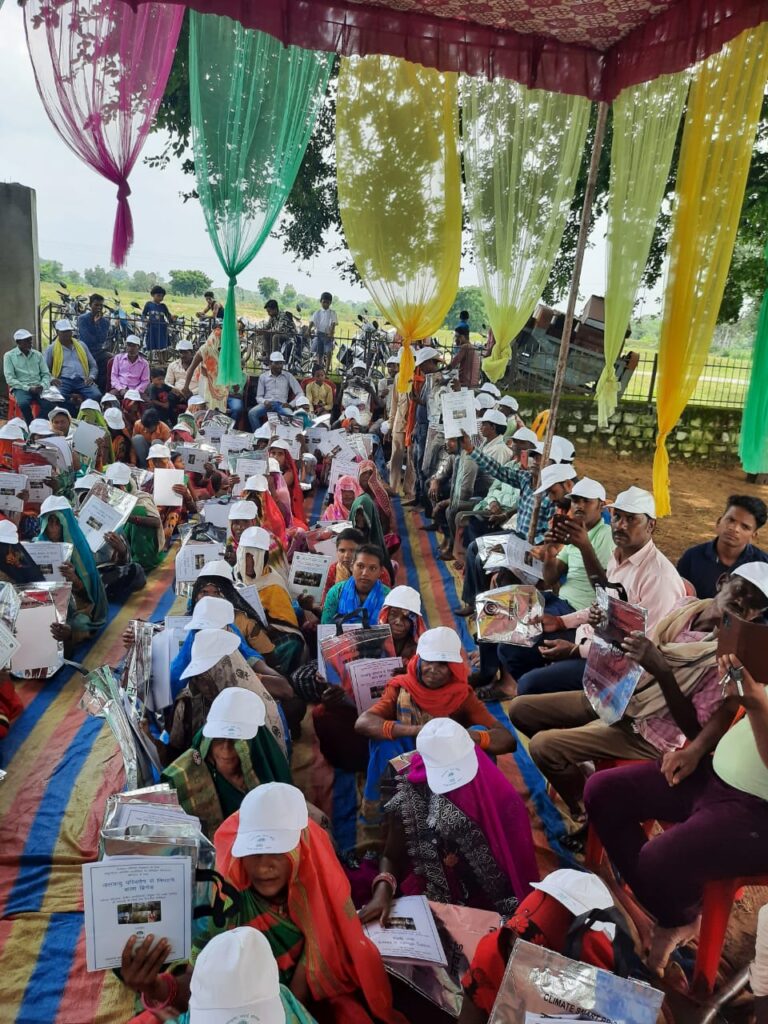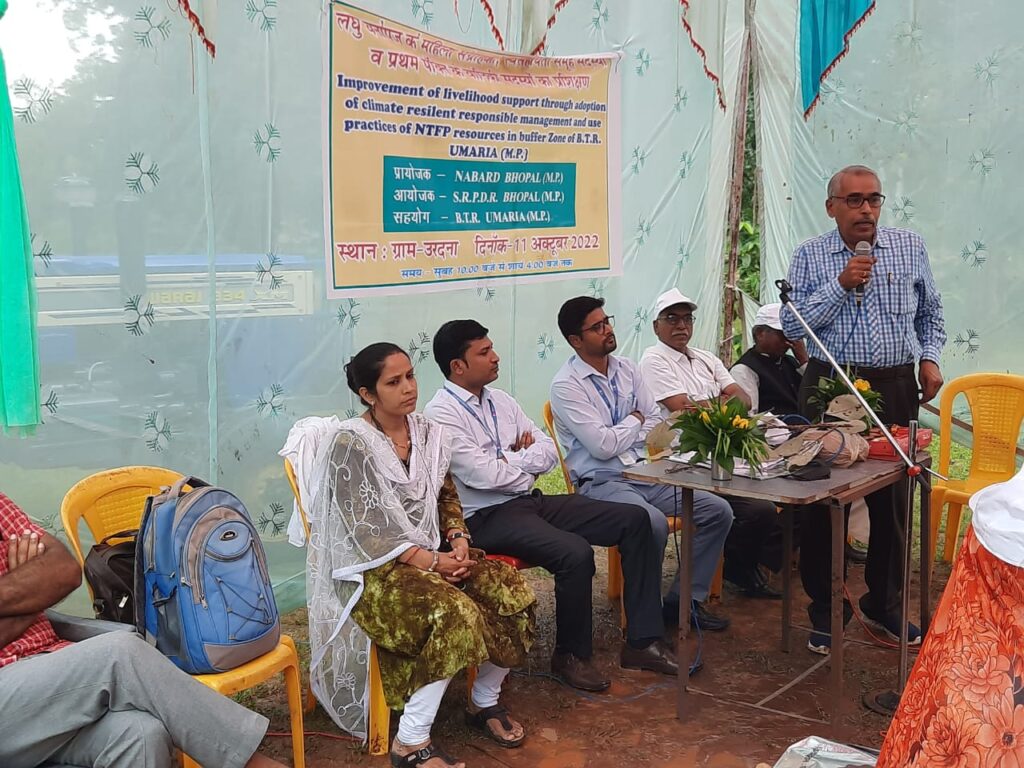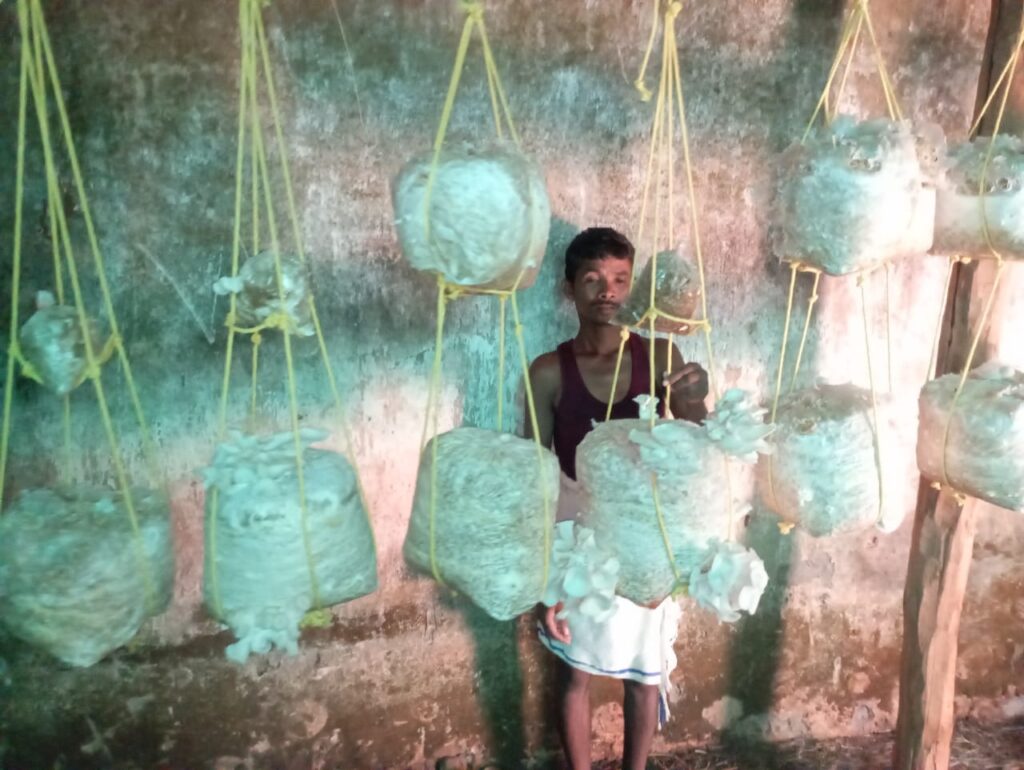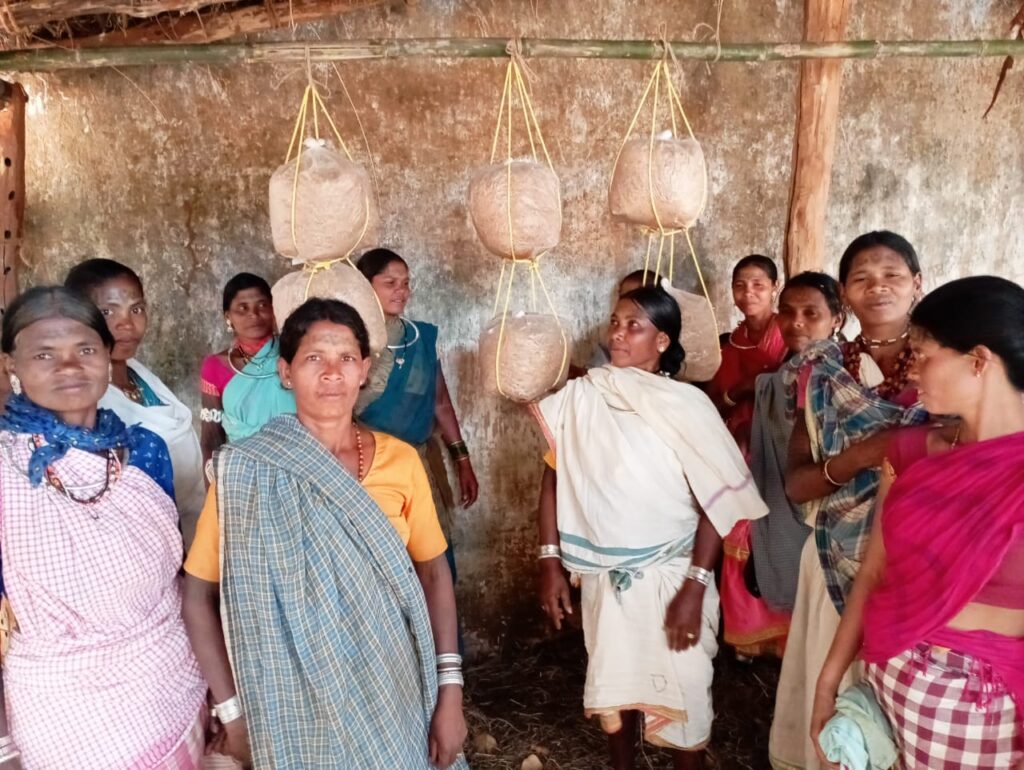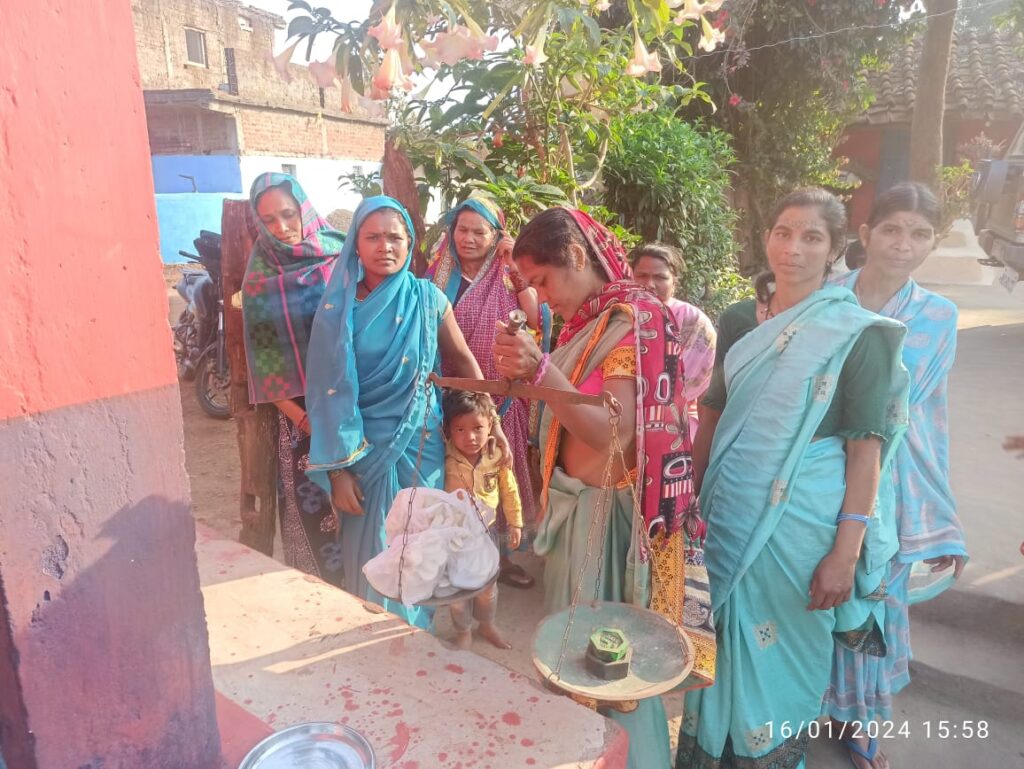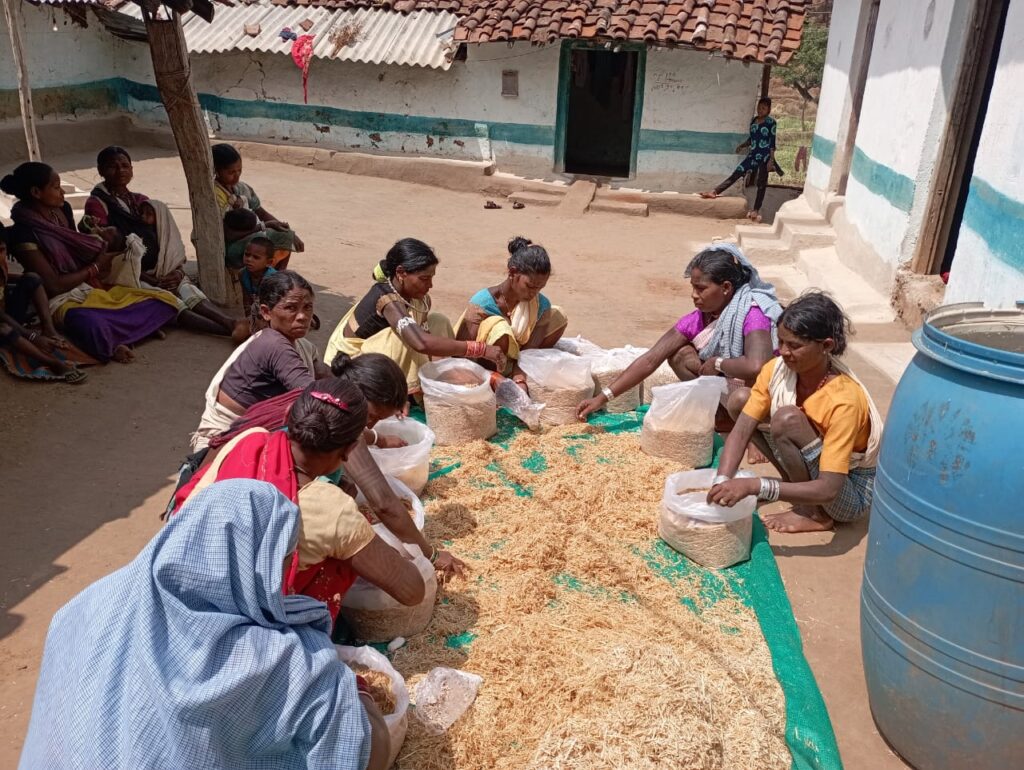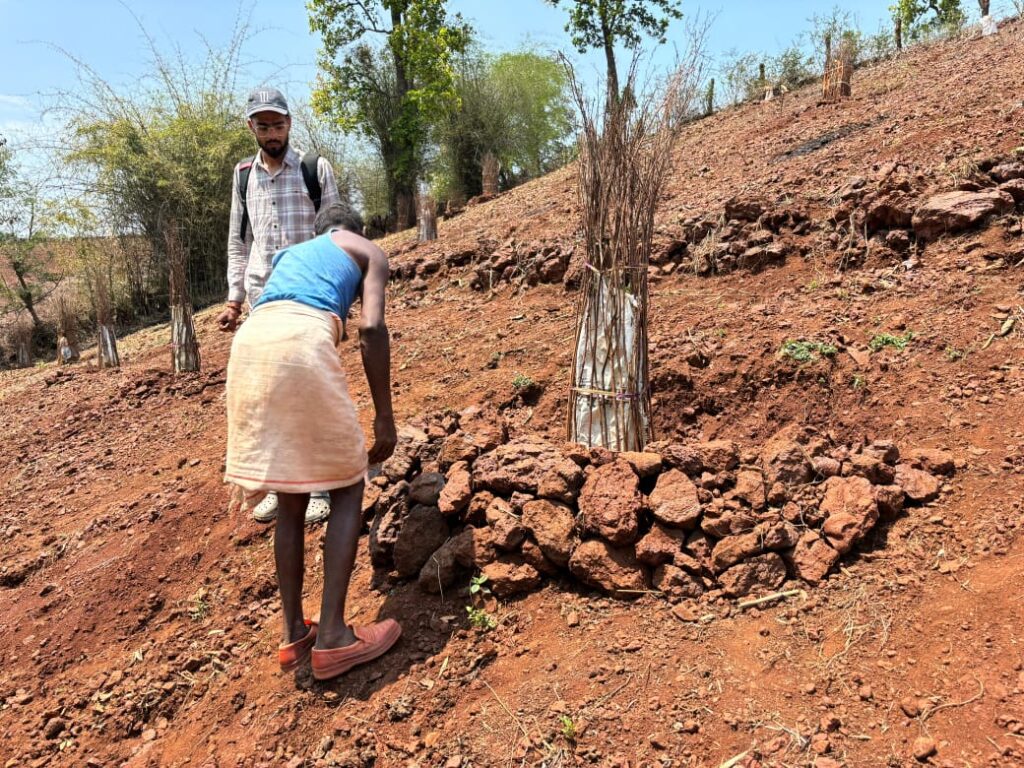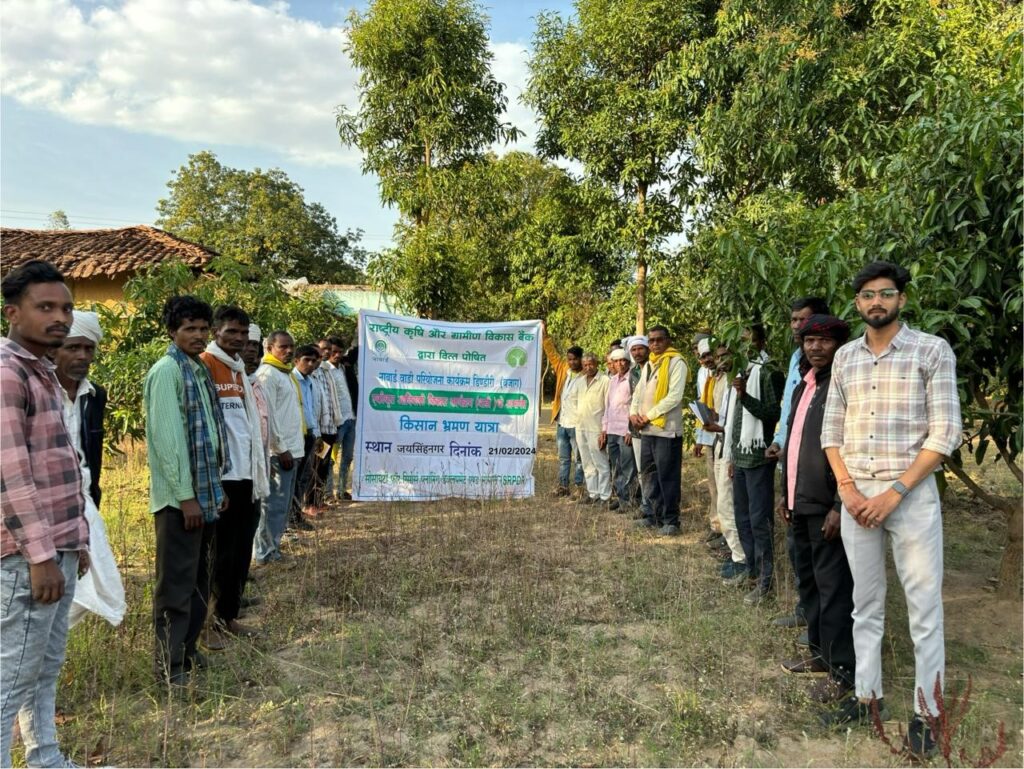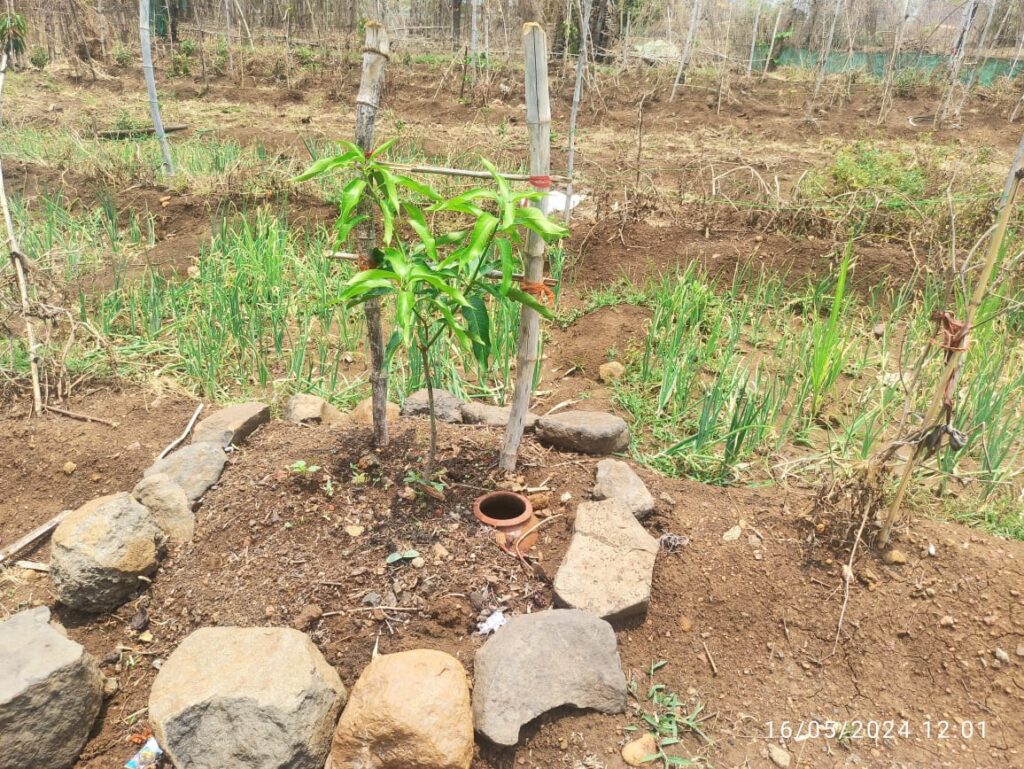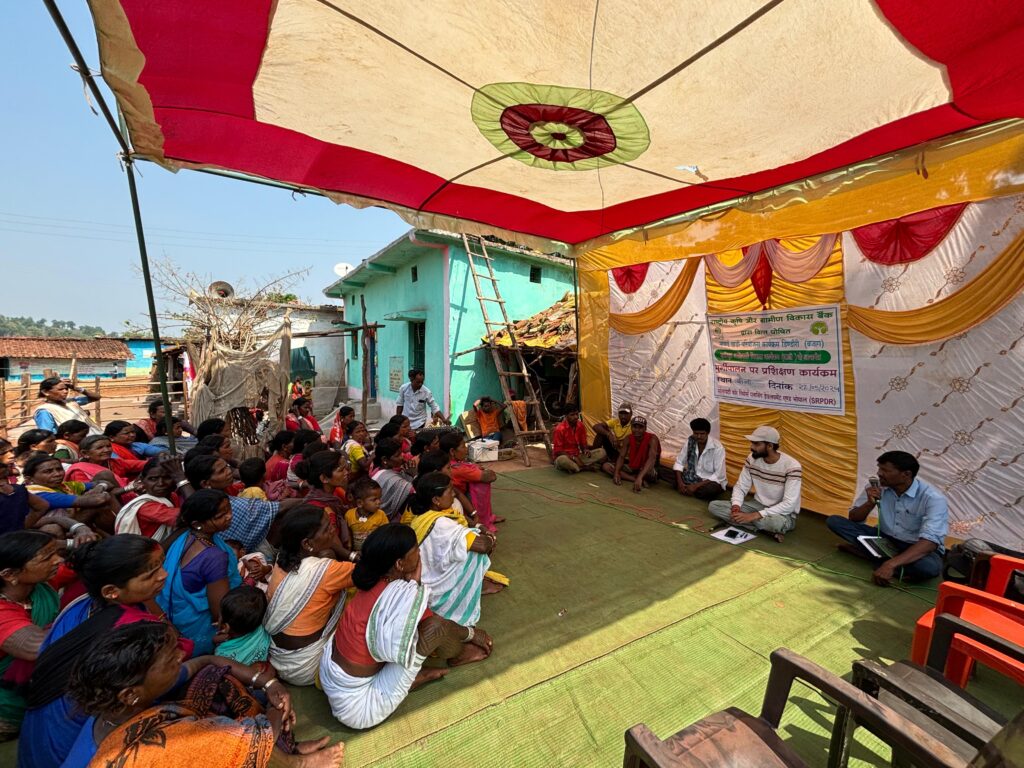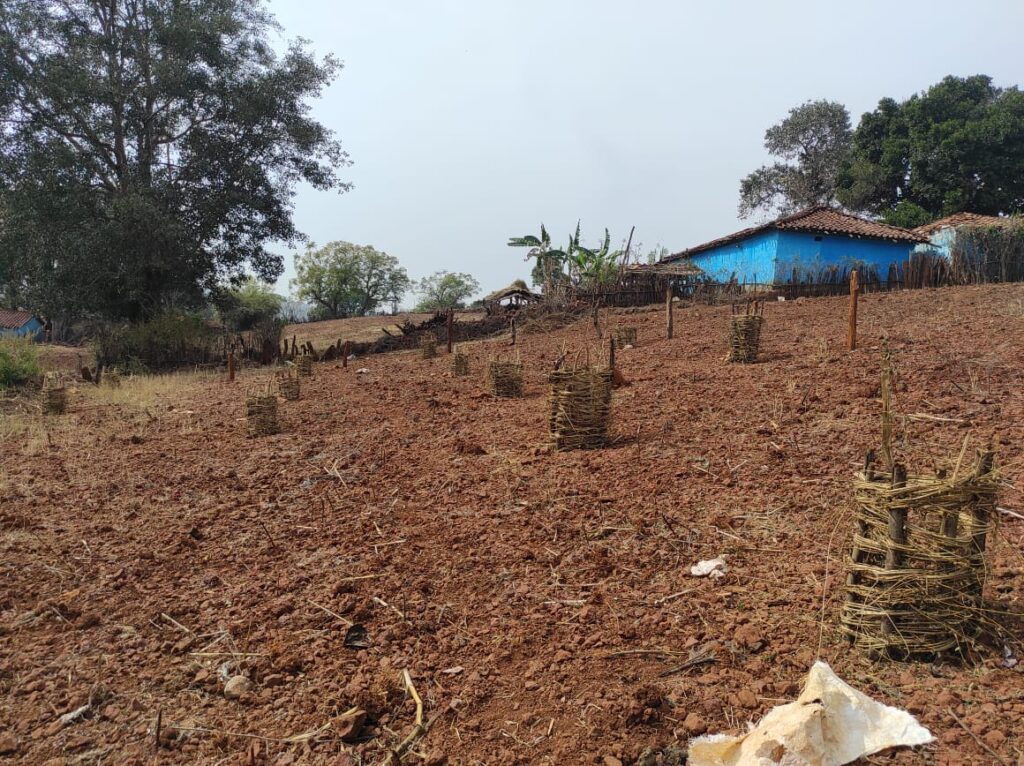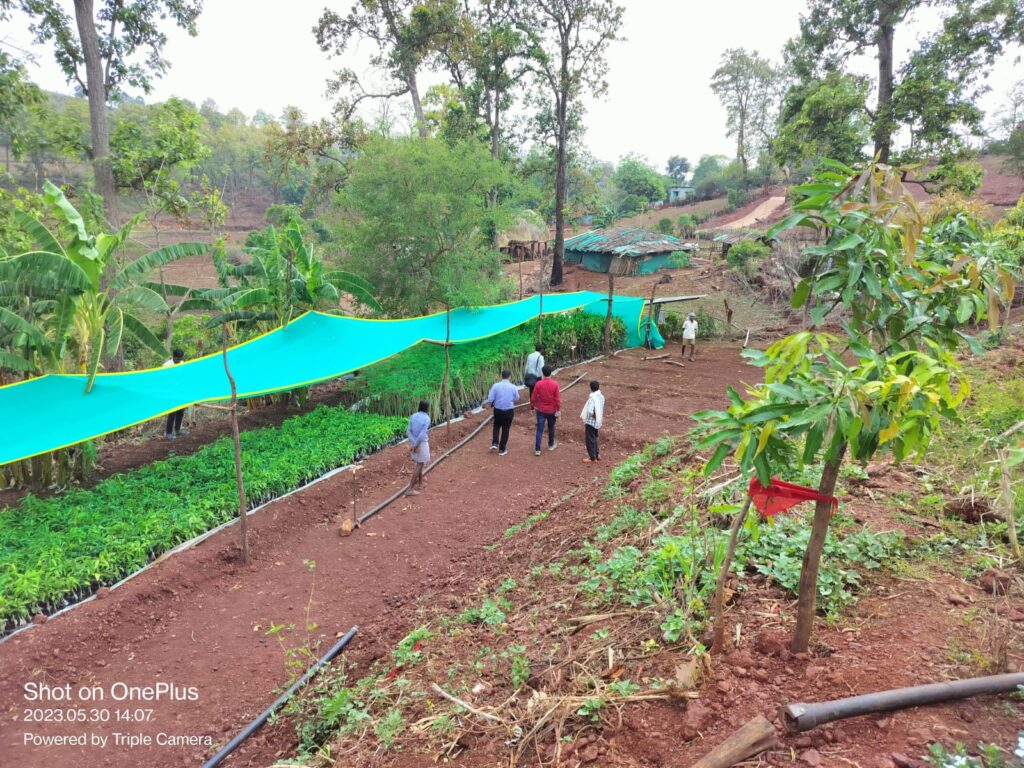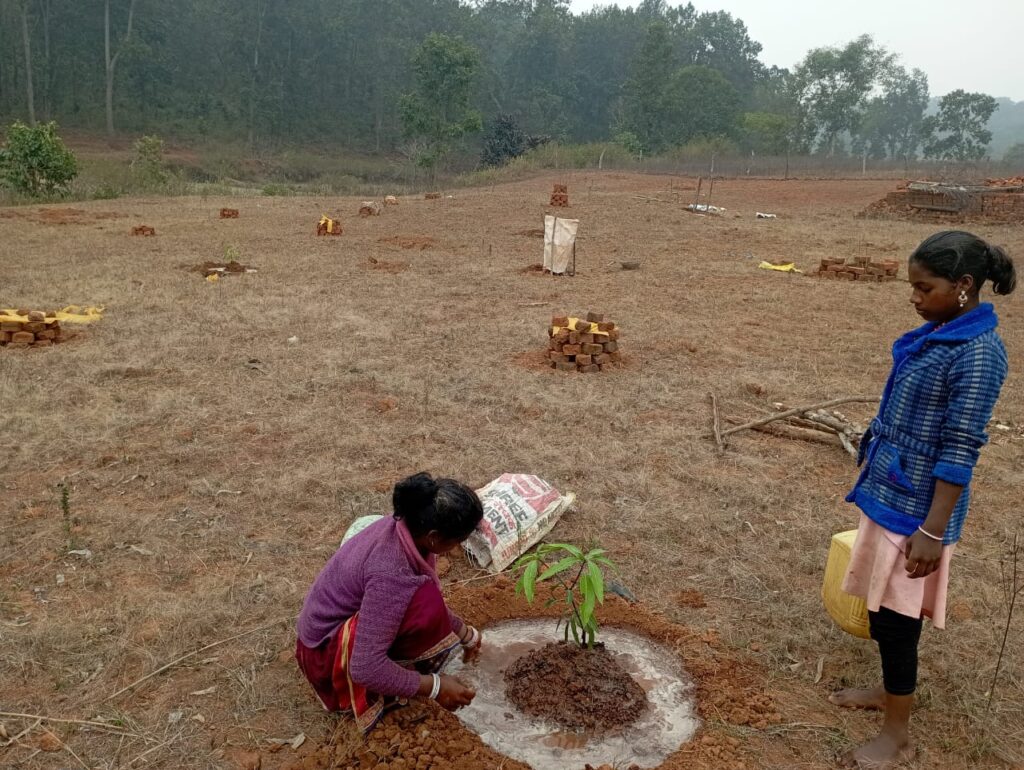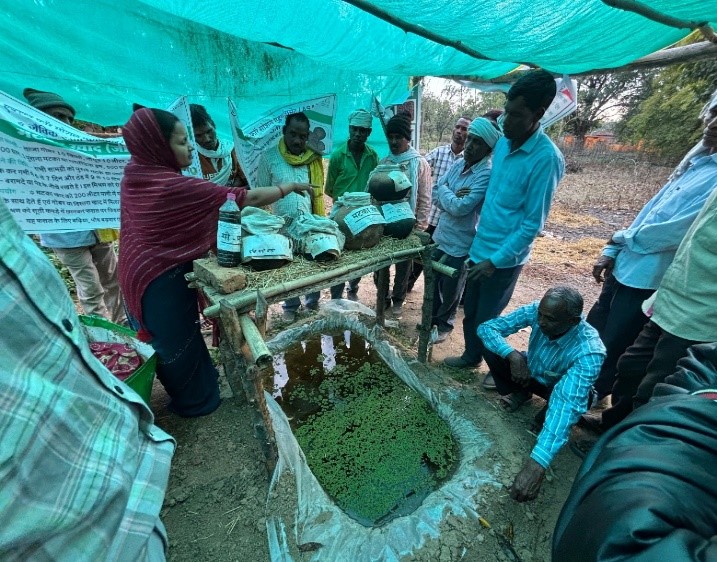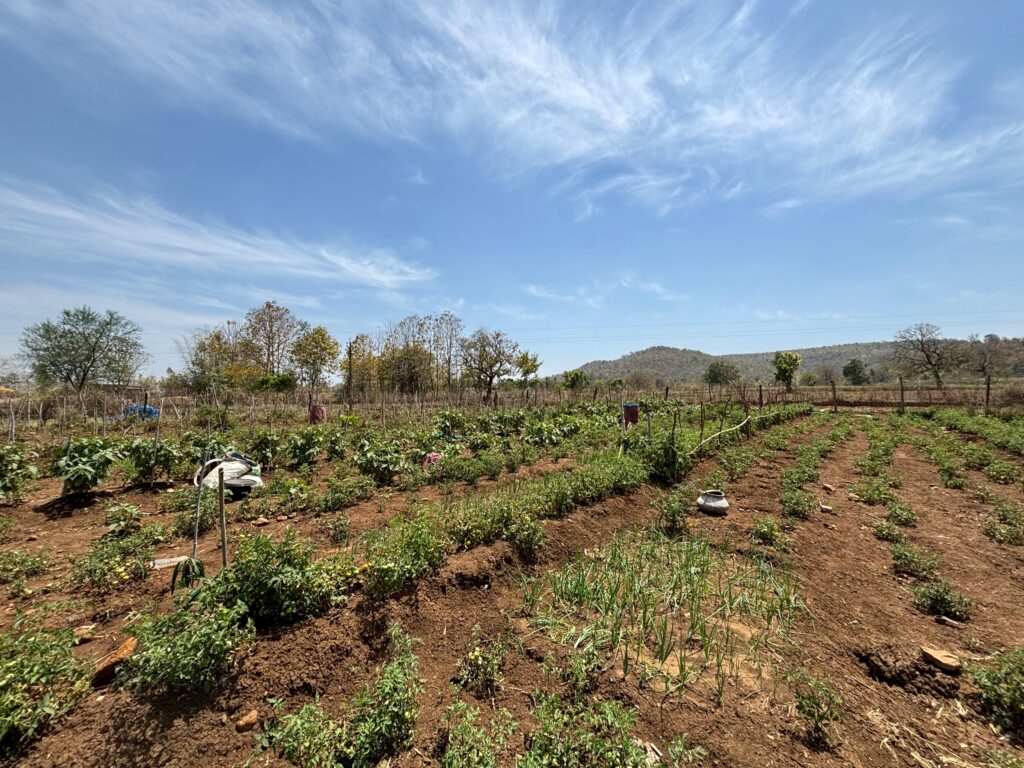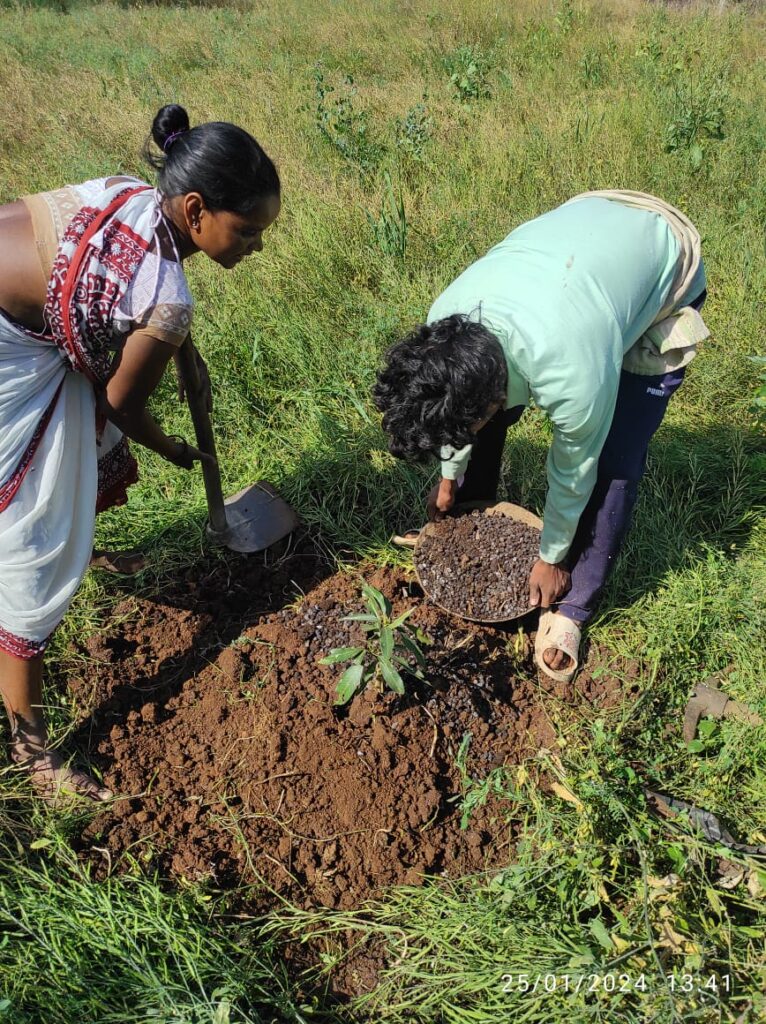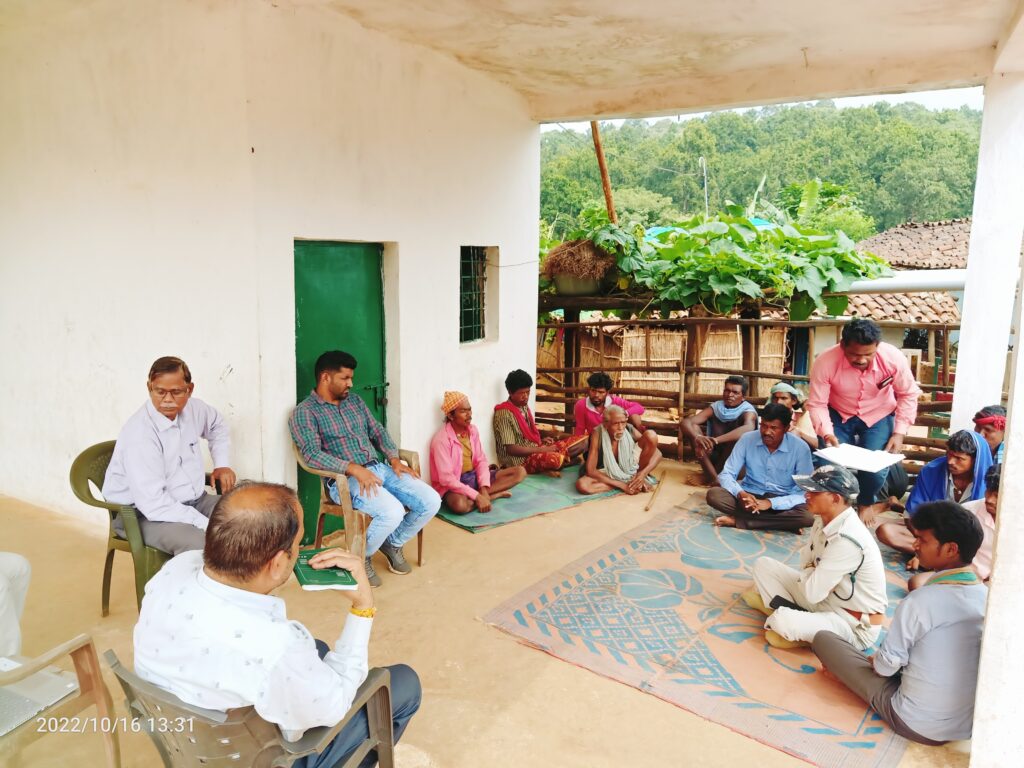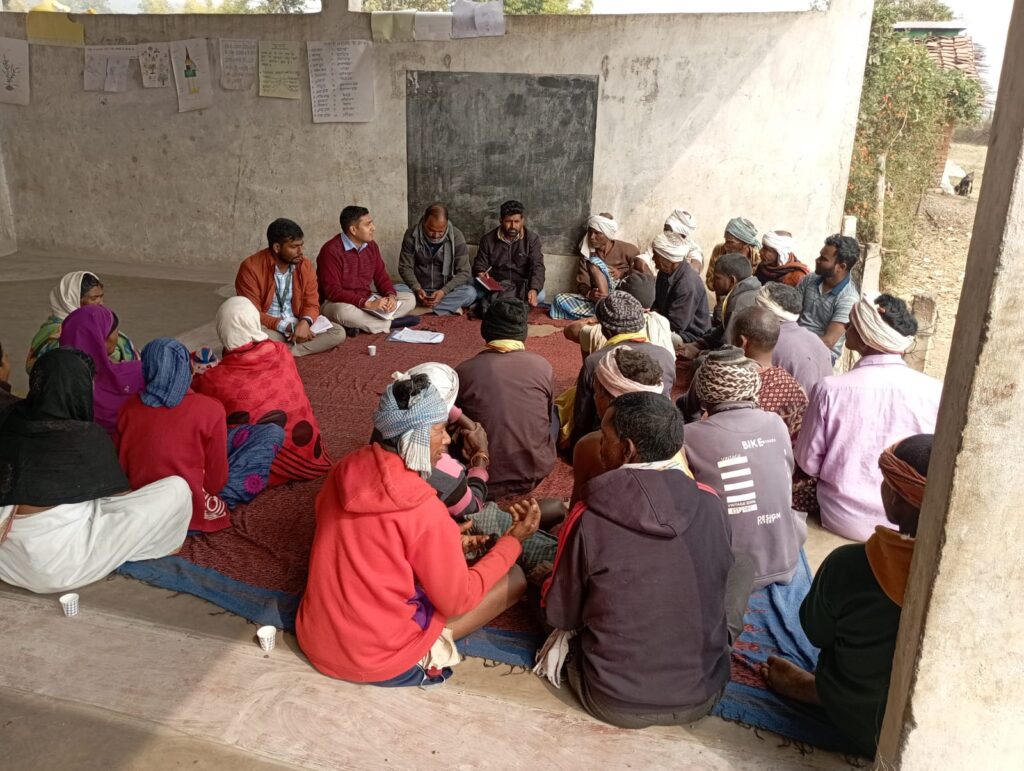To promote the concept of responsible management and use of natural resources for sustained livelihood and biodiversity conservation. The focus is on reconciling the twin objectives of biodiversity conservation and livelihood security.
- Forest Landscape Restoration
- Sustainable NTFP management
- Capacity Building & Training for tribal communities
- Policy research, formulation & Interpretation
- Climate change mitigation practices and certification
- Documentation of traditional & sustainable practices of tribal communities
- Curriculum development for NGOs, communities & professional
- Sustainable livelihood for rural & forest dependent communities
- Community mobilization for Natural Resource Management & livelihood enhancement
- Third party monitoring and evaluation
Ecosystem Services Improvement Project (ESIP) – Funded by World Bank

Green India Mission
Assignment name: ‘’Sustainable Harvesting Protocols, Value addition & Value Chain Development for Non-Timber Forest Products (NTFPs) in selected Districts (Sehore, Betul and Hoshangabad) of Madhya Pradesh’’
Objective :
- Develop protocols for use by collectors, local communities and tribal for sustainably harvesting the NTFPs.
- Develop a training manual for training the collectors, local communities and tribal and prepare local trainers through Training of Trainers (TOT), as identified by the Project.
- Outline the steps involved in value addition of NTFPs and the associated processes involved.
- Demonstrate value addition and/or develop new products from the locally available NTFPs and also demonstrate their production process;
- Map the available markets, support in branding and linking with markets in order to create a full value chain for the NTFPs; and Facilitate establishing local level institutional models (producer companies and/or local cooperatives) and provide necessary training for proper operations and governance of such local level institutions.
Actual Service Provided :
- Nutri- Bakery Unit establishment at Betul Forest Division.
- Draw a map of the community’s forest boundaries and mark which NTFPs are available
- Find out from a recognized institution about the global/local status of the species in the area
- Conduct a species-specific population assessment in the forest from where NTFP is collected locally
- Document methods used for harvest by the community
- Preparing sustainable harvesting protocols (including translating in local language) for NTFPs
- Developing training manuals (including in local language) for use of the sustainable harvest protocols
- Training of Trainers (as identified by the project) who will, in turn, train local communities, collectors and tribal in applying the sustainable harvest protocols
- Documenting status of NTFP collection (through primary surveys and stakeholder interactions), including volumes traded, price realized etc.
- Undertaking value addition of NTFPs through grading, sorting and marketing as well as through developing new products through processing steps.
Relevant Publications :
Nature based Solution (NbS)
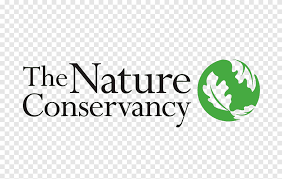
The Nature Conservancy
“Forest Landscape Restoration with the participation of Particularly Vulnerable Tribal Groups (PVTGs) of Madhya Pradesh”
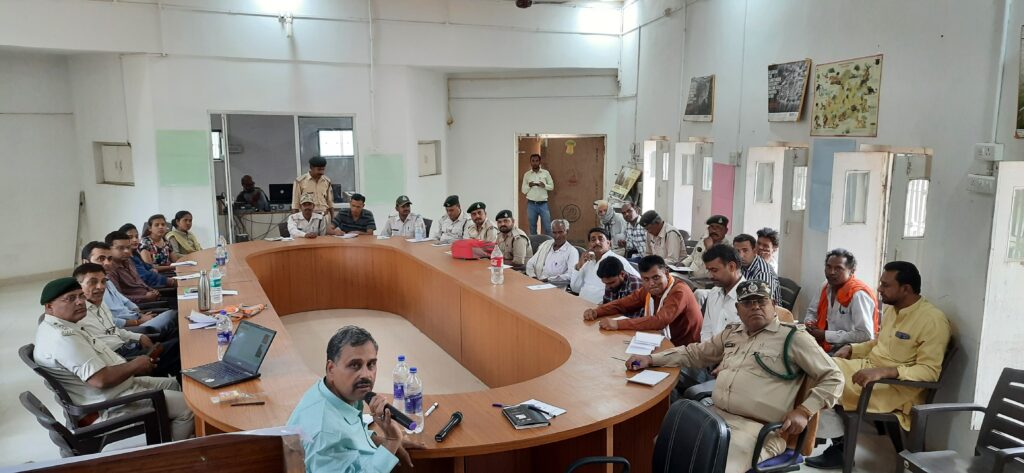
Project Objectives –
- Assessment of ecological, social and economic impact of extraction of key forest NTFP resources in Sheopur and Dindori Forest Divisions in Madhya Pradesh.
- Identification of key degraded patches where restoration offers the most potential (in ecological, Social and economic terms)
- Preparation of a long-term plan for restoration in these patches.
Project Location: Sheopur and Dindori Forest Divisions, Madhya Pradesh
Project Activities Done –
- Assessed ecological, social and economic impact of extraction of at least 12 key NTFPs in Sheopur and Dindori Forest Divisions in Madhya Pradesh.
- Prepared a long-term plan for restoration of these NTFPs in degraded patches.
- Implemented the above restoration plan at the selected sites to demonstrate the principles of sustainable restoration.
Socio-Economic and Ecological Assessment of NTFPs
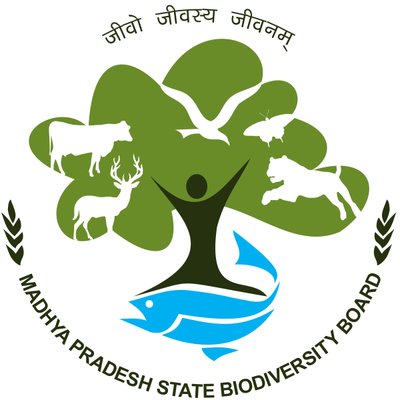
Madhya Pradesh State Biodiversity Board
Project Title – “Documentation of ecological status of 12 most collected and traded medicinal plants of Sheopur district: assessment of impacts on viability of resources, livelihood of local communities and strategy for sustainable management and use practices”
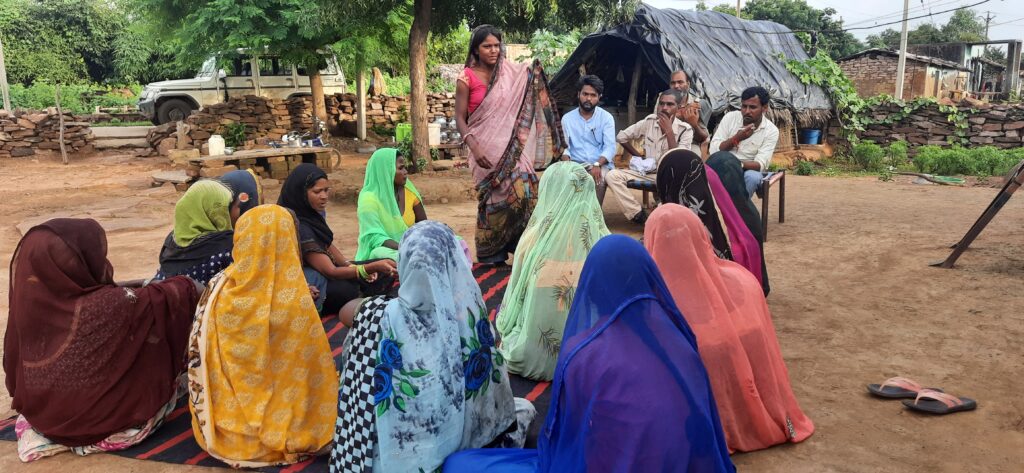
Project Objectives –
- To assess the prevailing harvesting methods and intensity on population viability of 12 most collected and traded species of medicinal plants.
- To document the shift in collection area of medicinal plants in the last decade or so.
- To document the variation in total household collection and income of gathers in past 10 years in respect of 12 most important species.
- To make an assessment of stakeholder’s perception on the resources, use practices, threat perception impacting the resource viability-regeneration status and growth and productivity.
To assess the causative factors responsible for present resource availability, (shrinking areas and declining collection?) and how to overcome and manage them.
Actual Services Provided –
- Community mobilization and interaction, with forest department community, JFMC and others. Selection of proposed clusters of villages for field sampling and FGD with gatherers for a group of species out of 12 species. Collect data through FGD and field verify; also validate with local traders, SHGs and FD officials
- Household surveys (10-15 gatherers per village), Profiling of collection area in the last decade and the reason for change if any- decline of species, collectible material etc.
- Qty of hh collection over past 10 years based on their memory and validated by petty traders. Profiling of variation in rates and hh income in the last 10 years.
- Personal interview with JFMC members, petty traders and local forestry staff. Collection of information on status of resources- occurrence, natural regeneration, growth and productivity.
- Transact walk, for participatory assessment in the forest by counting productive trees, sapling and poles, counting of regeneration of main species (12) in sample plots of different sizes.
NTFPs Based Livelihood Project

National Bank for Agriculture and Rural Development
Project Title – “Improvement of livelihood support through adoption of Climate Resilient Responsible Management and Use Practices of NTFP resources (augmentation, sustainable harvesting and development of market linkages) in buffer zone of Bandharvgarh National Park, Umaria District of Madhya Pradesh’’
Project Objective –
- To create climate smart brigade of 200 members of NTFP gatherers as women SHGs, JFMCs, and front-line foresters covering 17 villages by imparting training on participatory Mapping of NTFPs, resource augmentation, sustainable harvesting, primary processing and market linkage.
- To enhance the income of 200 NTFP gatherers by value addition through primary processing i.e. Grading, washing, cleaning, solar drying and safe & hygienic packaging, storage and marketing.
- To ensure resource augmentation by adopting existing trees and plants through Assisted Natural Regeneration (ANR) practices (lac cultivation on Palash & Kusum).
- To develop market linkages through various channels like E-platforms, establish linkages with market promotion agencies.
Project Activities Done –
- Selection of project team and their field deployment; Baseline survey and FGD, informal meetings and consultation with different stakeholders.
- Community mobilization organized intensive training (women SHGs, JFMCs and frontline foresters) for 02 days.
- Climate resilient development and use of NTFPs resources for improving livelihood base through intervention such as resource augmentation (ANR).
- Palash and Kusum lac inoculation, collection, processing and market facilitation.
- Processing and value addition of important NTFPs (Mahua Flower, Harra, Baheda, Aonla, Lac, Chironjee, Mahua Dori etc.)
- Established Village Procurement Centre (VPC) at Patehara, Chhapraud and Kalhari villages of Umaria district for collection, processing and marketing linkage.
Annual Report 2021-2022
Mushroom Collection & Cultivation

National Bank for Agriculture and Rural Development
Project Title – “Mushroom collection and cultivation through 15 WSHGs in Baiga-chak area of Dindori district, Madhya Pradesh under project for Livelihood and Enterprise Development Programme (LEDP)”
Project Objectives –
- Organizing training sessions for the gatherers for practicing techniques to preserve mushroom varieties for a longer shelf life and remunerative price.
- Organize WSHGs and provide training to take up mushroom cultivation to supplement household income.
- Setup demonstration unit for drying and safe storage of wild mushrooms.
- Setup demonstration units for cultivation of mushroom (Oyster) so as to get year-round production.
- Organize processing and marketing for better household income.
Tribal Development Fund (TDF)

National Bank for Agriculture and Rural Development
Project Title – Tribal development fund (TDF) project at Bajag block of Dindori District” Development of WADIS in the district in 250 households of the selected villages
The project envisages the implementation of the Tribal Development Project in 5 tribal-dominated villages i.e., Jalda, Bona, Kathariya, Labeda, Banjartola, Hadsinghari, Sindurkhar of Bajag block of Dindori district.
Major components include: AgriHorti-Forestry, Animal Husbandry Poultry Farming, Soil conservation, water resource development, sustainable agriculture, training & capacity building,
the women development program, community health program, micro-enterprise for landless
beneficiaries etc., The entire program targets 250 tribal families including 230 (Wadis + poultry farming and 20 landless families).
